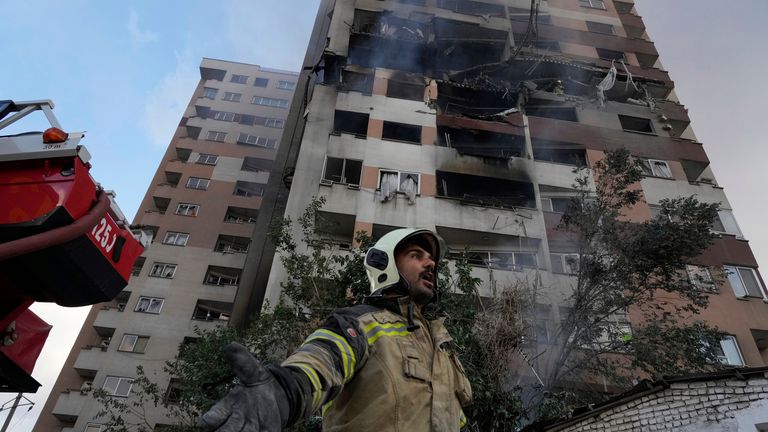The Israel-Iran conflict has continued to make headlines in national dailes globally. Israel launched a large-scale missile assault on Iranian military and nuclear targets on Friday, leaving several high-ranking Iranian officials dead and triggering a swift retaliatory strike from Tehran.
Prime Minister Benjamin Netanyahu vowed that the campaign would continue “as many days” as necessary, citing Israeli intelligence reports that Iran was nearing a “point of no return” in its nuclear programme. In response, Iran condemned the strikes as “a declaration of war” and unleashed dozens of missiles on Israel later Friday and into Saturday.
As tensions escalate, world leaders have voiced growing concern, warning of the risk that the conflict could spiral into a wider Middle East war.
Key nuclear sites targeted
The Israeli strikes, which began early Friday—a traditional day of rest and prayer in Iran—continued throughout the day, hitting multiple sites.
One of the primary targets was Iran’s major underground nuclear facility in Natanz, which sustained several strikes according to Iranian state TV. However, the head of the UN’s International Atomic Energy Agency (IAEA), Rafael Grossi, assured that “radiation levels outside the facility remained unchanged.”
Iran reported minor damage at its Fordo and Isfahan nuclear facilities.
Top military leaders killed
Among those killed were Iran’s Revolutionary Guards commander Hossein Salami, armed forces chief Mohammad Bagheri, and Amirali Hajizadeh, who headed Iran’s aerospace and missile forces. Supreme Leader Ayatollah Ali Khamenei quickly appointed replacements.
Iranian state media also reported the deaths of several nuclear scientists. Iran’s ambassador to the United Nations revealed that 78 people were killed and 320 others wounded in the first wave of attacks.
Ongoing assaults
Israel’s strikes extended to Iran’s East Azerbaijan province, where 18 more fatalities were reported by state news agency IRNA.
An Israeli military spokesperson stated that over 200 targets had been struck, including nuclear facilities and air bases. Netanyahu’s national security adviser, Tzachi Hanegbi, clarified that “there is currently no plan to kill” Supreme Leader Khamenei or other political leaders.
Iran’s communications ministry imposed nationwide internet restrictions, promising services would resume “once normalcy returns.”
Iran’s counter-offensive
Hours after the Israeli bombardment, Iran retaliated by launching dozens of missiles. The Revolutionary Guards confirmed the attack while Israel claimed that most of the 100 Iranian drones were intercepted outside its territory.
On Saturday, Iran launched a fresh wave of missile strikes. The Israeli military activated air raid sirens, warning of more incoming projectiles. “Our air force is actively intercepting and eliminating threats as necessary,” the Israeli army said.
Emergency responders in Israel reported that 21 people were wounded along the coast, while 34 others were injured in the Gush Dan area. One woman later died from her injuries, according to local media.
US position and possible involvement
Iran’s Foreign Minister Abbas Araghchi described the Israeli strikes as “a declaration of war” and urged the UN Security Council to intervene. The council held an emergency meeting on Friday.
Ahead of the Israeli attack, Washington evacuated non-essential personnel from several of its Middle East bases. Although the United States was informed in advance, President Donald Trump stressed that the US was not directly involved.
“Israel fully briefed us ahead of time, but we are not involved,” Trump stated. He warned Tehran that “the next planned attacks will be even more brutal” and urged Iranian leaders to negotiate: “Make a deal before there is nothing left.”
Trump reiterated his long-standing position that he will not allow Iran to obtain nuclear weapons. Secretary of State Marco Rubio also cautioned Iran not to target US assets or personnel in the region.
Iran’s nuclear progress
Tehran has consistently denied pursuing nuclear weapons but has been enriching uranium to 60% purity, far beyond the 3.67% cap under the now-defunct 2015 nuclear agreement with world powers. However, this is still short of the 90% level required for nuclear arms.
The next round of nuclear negotiations between the US and Iran, which had been scheduled for Sunday in Oman, has now been postponed.
Global alarm and reactions on the Israel-Iran conflict
The conflict has sparked international alarm, with many world capitals urging de-escalation, fearful that further escalation could disrupt oil supplies and draw more countries into the conflict.
The United Nations Secretary-General, Antonio Guterres, called for an immediate halt to hostilities, saying, “Peace and diplomacy must prevail.”
Several Middle Eastern nations — including Israel, Iran, Iraq, Jordan, and Syria — closed their airspace, forcing airlines to suspend flights across the region.
Oil prices surged following the attacks, briefly reaching $75 per barrel before stabilising. Analysts warn that up to 20% of the world’s oil, which passes through the narrow Strait of Hormuz, could be at risk if hostilities continue.
The UN atomic watchdog has scheduled an emergency meeting for Monday to assess the fallout from the conflict.



